More Info: Michael DiMaria | Partner and SW Regional Director | 602-717-3891 | [email protected]
Thanks for your interest in Washington, D.C., and thanks for reading This Week in Washington.
Americans – finally and thankfully – are coming out of our COVID cocoons. One of the things I have been thinking about over this past year is how a changing society is forcing some changes on Congress, and sometimes how the structure and traditions of Congress are pushing back.
It is an important subject, and not just an academic or historical one, because we are seeing it play out in the Senate in its deliberations over the President’s infrastructure bill. Heard on the Hill is about the potholes on the road to an infrastructure bill, but it is really about the struggle between ‘want to’ and ‘can do’… and how this bill ultimately gets done.
Ramona Lessen provides reviews two key legislative hearings – one before the Senate Finance Committee on the IRS budget for 2022, and another of the Senate Homeland Security and Governmental Affairs Committee discussing threats to our critical infrastructure.
Thanks again for your notes and comments. We will be back in two weeks – June 23rd – for the next issue of This Week.
Stay well.

Steve Gordon, Managing Partner
Heard on the Hill
The Potholes on the Road to an Infrastructure Bill – and Other Legislation
By Steve Gordon, Total Spectrum Managing Director
The Struggle Between Want To and Can Do
Progressives saw their chance during the 2020 campaign to nominate and ultimately elect a Democrat from their side of the party, but none of the progressive candidates appeared able to defeat President Trump. Progressives thought Joe Biden was too old, too mainstream, and they thought he was way too comfortable compromising with Republicans in the Senate. But Joe Biden became the consensus candidate of all Democrats when Congressman Jim Clyburn endorsed him in the South Carolina primary.
Former Vice President Joe Biden became President Joe Biden on January 20th, and his administration became a national Rorschach test. Republicans who served with Joe Biden liked him and remembered that he was the guy who negotiated with Leader McConnell during the Obama years. Independents liked his calls for bipartisanship, senior citizens wanted the government to attack and defeat COVID, and progressives hoped that it was now finally their time to shine.
President Biden’s first major legislative agenda was a $1.9 trillion coronavirus relief bill. It passed through the Senate under the budget process called reconciliation, which is a procedural method that allows bills that impact the budget to pass on a simple majority vote. All Democratic Senators voted for the bill, and all Republican Senators voted against it. The 50-50 tie was broken by Vice President Harris, the President of the Senate.
The bill was signed by President Biden on March 11th, but since then the pace of legislating has slowed. This slower pace is certainly displeasing to progressives and their allies, and they are putting great pressure on the Administration and Democratic Senators to put their collective feet on the gas. There is a fair amount of posturing and an equal amount of discussion, but not much activity. But there are a great number of people who contend that we are seeing what happens when the push of our changing society goes against the pull of the Senate’s culture and rules, and both run up against the guardrailsof our polarized politics.
The House of Representatives was perceived by the Founders as the teacup – hot and immediate. But the Senate was perceived as the saucer – cool and deliberate – and it became known as “The World’s Greatest Deliberative Body.” Compromise was king, and as many Senators as possible got to say they won something through the amendment process. Everyone welcomed the chance to relitigate the issue at some future date.
The filibuster is part of the Senate tradition. Most Senators still believe that the tradition of the filibuster protects minority party rights, and they know in our polarized politics the majority party of today is one bad election away from being in the minority. Senator Joe Manchin (D-WV) has been out front in his opposition to getting rid of the filibuster, but there are four or five Democrat Senators – including Arizona’s Kyrsten Sinema – who are anywhere from leery to downright opposed to eliminating the filibuster.
The guardrail for the legislative process is the political process because Congress was created to mirror the country. We are a divided country, so it is no surprise that the Senate is evenly split. It is customary for the party not in the White House to lose seats in the off-year election, so the Senators who are up for reelection in 2022, as well as the leaders of each party, are looking at legislation at least partially through the prism of politics.
But to progressives, and in fairness to conservatives when Republicans were in power, deliberation and compromise sounds antiquated in our polarized political world of talk radio and social media. Winning is in. Compromise to many is a cop-out.
Where We Are
President Biden has wanted to negotiate a bipartisan deal on items customarily called infrastructure. His initial proposal was for an eye-popping sum which would be paid for by raising corporate taxes. Senator Capito (R-WV) was the Republican point person in the negotiations. She made several counteroffers on the amount of money to be spent, but the Republican position is to pay for the infrastructure investments from user fees rather than gut the 2017 Tax Cuts and Jobs Act. President Biden moved a little off his initial proposal for the size of the bill, but apparently never left the Administration’s position that increasing corporate taxes was the appropriate pay-for.
President Biden broke off discussions with Senator Capito Tuesday and is looking to begin discussions with a bipartisan group that includes Senators Portman (R-OH), Cassidy (R-LA), Manchin (D-WV), and Sinema (D-AZ).
Progressives want Majority Leader Schumer to pass the infrastructure bill using reconciliation. However, the Senate Parliamentarian ruled last week that Democrats cannot pass another reconciliation bill by going back to the 2021 fiscal year budget.
The Administration recently released its budget for 2022. Senator Bernie Sanders, Chairman of the Senate Budget Committee, is anticipated to start work on the Fiscal Year 2022 budget next month.
The Only Real Path Forward
President Biden needs a victory on infrastructure. Republicans and Democrats are too far apart on the cost of an infrastructure package and are totally in their own corners on how to pay for it. There are any number of people who hope the bipartisan efforts will succeed but there are only a few people who can see a way to close the gap.
Sooner or later, passing an infrastructure bill using the budget reconciliation process is their only road home. It would be tied to the Fiscal year 2022 budget, and the size, scope, and the way to pay for the bill will undoubtedly involve old fashioned compromise within the Senate Democratic caucus.
Hearing Reports
By Ramona Lessen, Executive Director, Total Spectrum
Senate Homeland Security and Governmental Affairs Hearing on Threats to Critical Infrastructure: Examining the Colonial Pipeline Cyber Attack
June 08, 2021; 10:00 AM
To view a livestream of the hearing please click here.
Opening Statements
Senator Gary Peters (D-MI), Chairman
Senator Rob Portman (R-OH), Ranking Member
Witnesses
Joseph A. Blount, JR.
President and Chief Executive Officer
Colonial Pipeline
Senate Finance Committee Hearing on the IRS’s Fiscal Year 2022 Budget
Tuesday, June 8, 2021; 10:00 AM
To view a livestream of the hearing please click here.
Opening Statements
Senator Ron Wyden (D – OR), Chairman
Senator Mike Crapo (R – ID), Ranking Member
Witnesses:
The Honorable Charles P. Rettig
Commissioner
Internal Revenue Service
Washington, DC
Vaccine tracker: 63.9% of U.S. adults have received first dose
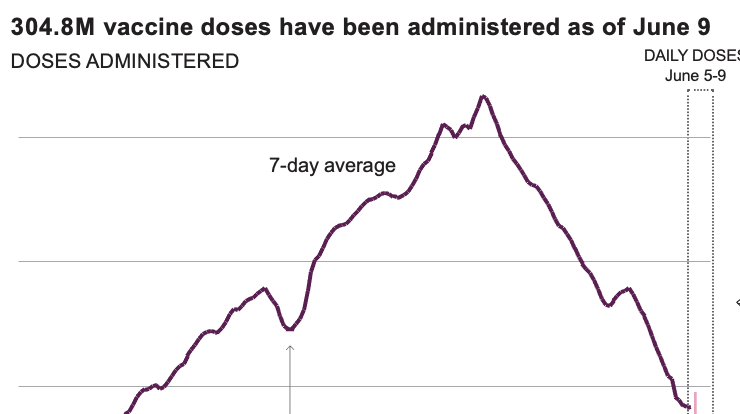
May unemployment shows uneven recovery across labor force
Low supply plagues high demand for cybersecurity experts
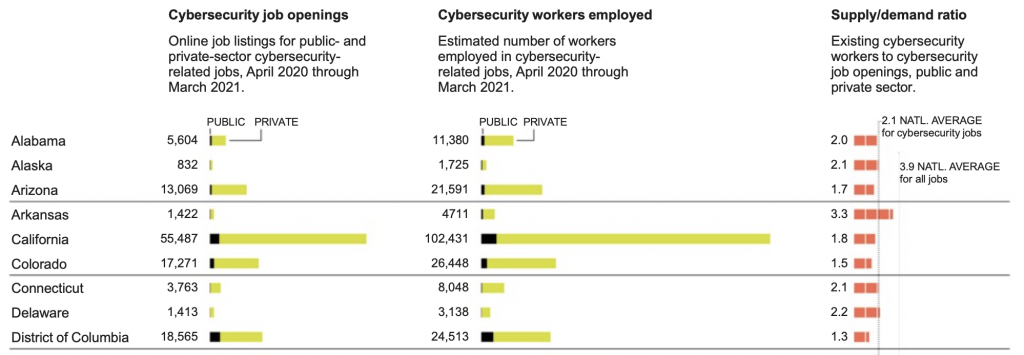
What you need to know about Biden’s Buy American Policy

Childcare costs increased in every state, spurring national debate
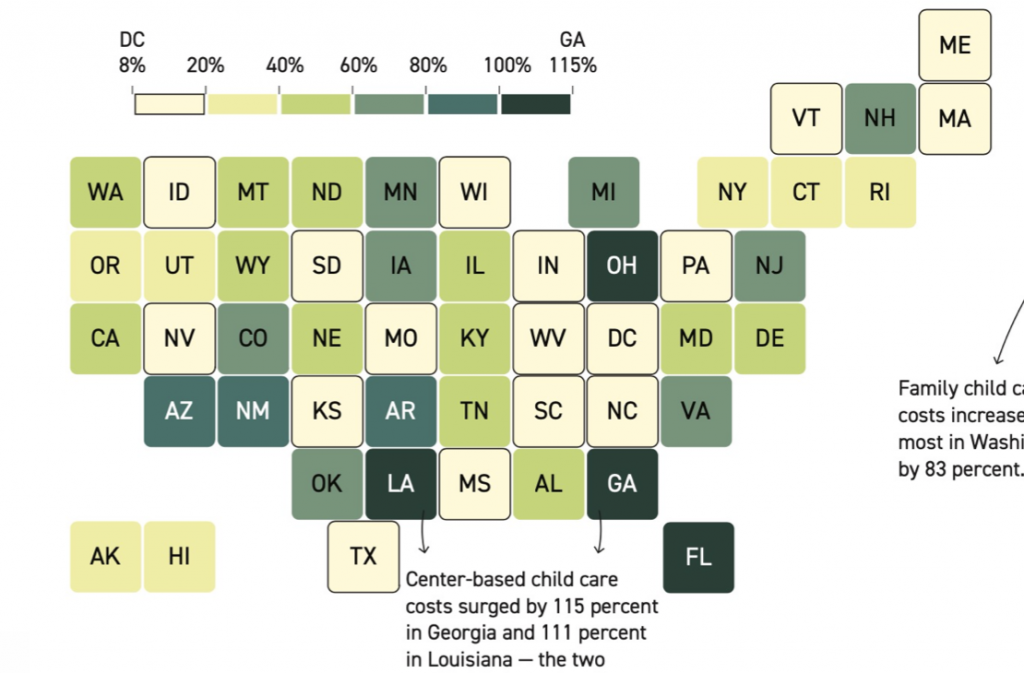
What you need to know about Paid Leave
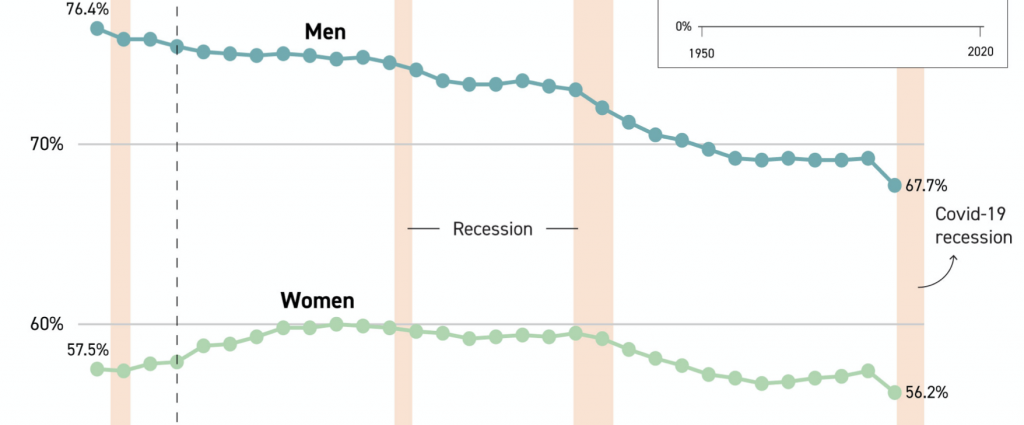
What you need to know about Taxing Marijuana
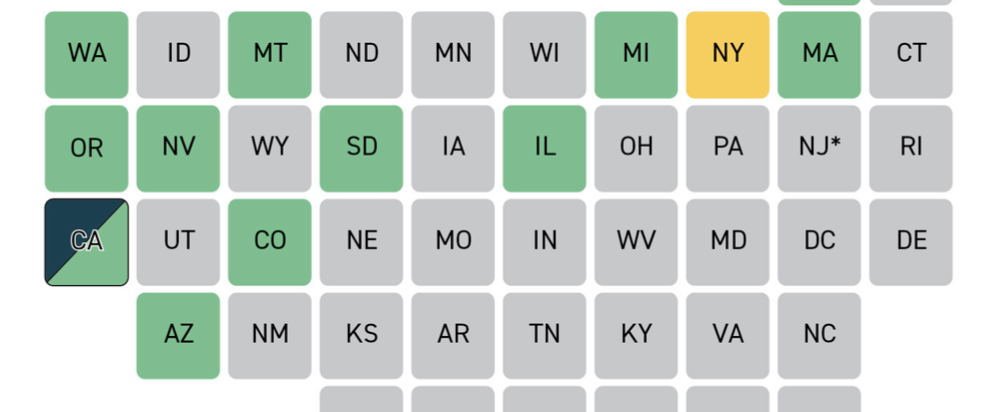
Congressional Calendar
All times in EDT
Monday, June 7
- 11 a.m. House Oversight and Reform Committee hearing on infant product safety.
- 11 a.m. House Science Environment Subcommittee virtual hearing on ocean and lake technology.
- 2:30 p.m. House Appropriations State-Foreign Operations Subcommittee hearing on Biden’s fiscal 2022 budget request for the Department of State. Blinken testifies.
- 3 p.m. House Armed Services Tactical Air and Land Forces Subcommittee virtual hearing on fiscal 2022 Army and Marine Corps modernization programs.
Tuesday, June 8
- 9:30 a.m. Senate Armed Services Committee hearing on U.S.-China competition. Former Deputy National Security Adviser Matt Pottinger testifies.
- 10 a.m. House Veterans’ Affairs Committee virtual hearing on Biden’s fiscal 2022 budget request. McDonough testifies.
- 10 a.m. House Judiciary Courts, Intellectual Property and the Internet Subcommittee hearing on congressional authorities.
- 10 a.m. Senate Finance Committee hearing on Biden’s fiscal 2022 budget request for the IRS. Rettig testifies.
- 10 a.m. Senate Homeland Security Committee hearing on critical infrastructure and the Colonial Pipeline attack. Colonial Pipeline President Joseph Blount testifies.
- 10 a.m. Senate Energy and Natural Resources Committee hearing on pending nominations, including the nomination of Tracy Stone-Manning to be Director of the Bureau of Land Management.
- 10 a.m. Senate HELP Committee hearing on pending nominations.
- 11 a.m. House Armed Services Seapower Subcommittee virtual hearing on Air Force programs and capabilities related to Biden’s fiscal 2022 budget request.
- 11 a.m. Senate Budget Committee hearing on Biden’s fiscal 2022 budget request. Young testifies.
- Noon. House Oversight Committee hearing on the Sackler family’s role in the opioid epidemic and to discuss reforms like the SACKLER Act.
- Noon. House Natural Resources National Parks, Forests and Public Lands Subcommittee virtual legislative hearing on four public land recreation bills.
- 2 p.m. House Homeland Security Emergency Preparedness Subcommittee virtual hearing on climate change.
- 2 p.m. House Energy and Commerce Consumer Protection Subcommittee virtual hearing on the Department of Commerce’s fiscal 2022 budget. Raimondo testifies.
- 2 p.m. Senate Appropriations Defense Subcommittee hearing on Biden’s fiscal 2022 budget requests for the Air Force and Space Force.
- 2:15 p.m. Senate Foreign Relations Committee hearing on Biden’s fiscal 2022 budget request for the Department of State. Blinken testifies.
- 2:15 p.m. Senate Banking Transportation-HUD Subcommittee virtual hearing on rural transit systems.
- 2:30 p.m. Senate Armed Services Seapower Subcommittee hearing on Navy and Marine Corps investment programs.
- 3 p.m. House Natural Resources Water Subcommittee virtual hearing on DDT dumping off the Southern California coast.
Wednesday, June 9
- 9:30 a.m. Senate Homeland Security and Governmental Affairs Committee business meeting on pending calendar business.
- 10 a.m. House Transportation and Infrastructure markup on the INVEST Act, a $547 billion surface transportation reauthorization bill.
- 10 a.m. House Appropriations Committee hosts a member day hearing.
- 10 a.m. Senate Foreign Relations Committee hearing to discuss U.S. policy in Belarus. U.S. Ambassador to Balerus Julie Fisher testifies.
- 10 a.m. Senate Appropriations Labor-HHS-Education Subcommittee hearing on fiscal 2022 budget estimates for the Department of Health and Human Services. Becerra testifies.
- 10 a.m. Senate Appropriations Interior-Environment Subcommittee hearing on fiscal 2022 budget estimates for the Environmental Protection Agency. EPA Administrator Michael Regan testifies.
- 10 a.m. Senate Appropriations Energy-Water Subcommittee hearing on fiscal 2022 budget estimates for the Army Corps of Engineers and the Bureau of Reclamation.
- 10 a.m. Senate Commerce, Science and Transportation Committee hearing on the rights of NCAA athletes.
- 10 a.m. Senate Judiciary Committee hearing on pending nominations.
- 10 a.m. Senate Environment and Public Works Committee hearing on PFAS.
- 11 a.m. House Budget Committee hearing on Biden’s fiscal 2022 budget. Young testifies.
- Noon. House Education and Labor Committee virtual hearing on the Department of Labor’s policies and priorities. Walsh testifies.
- Noon. House Financial Services Committee virtual hearing on vouchers and homelessness.
- Noon. House Homeland Security Committee virtual hearing on critical infrastructure and the Colonial Pipeline attack. Blount testifies.
- 2 p.m. Senate Appropriations Commerce-Justice-Science Subcommittee hearing on fiscal 2022 budget estimates for the Department of Justice. Garland testifies.
- 2:30 p.m. Senate Small Business and Entrepreneurship Committee hearing on the small business investment company program.
- 2:30 p.m. Senate Indian Affairs Committee hearing on the nomination of Bryan Todd Newland to be Assistant Secretary of the Interior.
- 2:30 p.m. Senate Intelligence Committee hearing on the nominations of Christine Abizaid to serve as director of the National Counterterrorism Center and Robin Ashton to be inspector general of the CIA.
- 2:30 p.m. Senate Foreign Relations Committee virtual hearing on pending nominations.
- 2:30 p.m. Senate Joint Economic Committee virtual hearing on the gender wage gap.
- 2:30 p.m. Senate Banking, Housing and Urban Affairs Committee virtual hearing on the potential for a central bank digital currency.
- 3 p.m. House Armed Services Readiness Subcommittee virtual hearing on Biden’s fiscal 2022 budget request for military readiness.
- 3 p.m. House Appropriations Financial Services Subcommittee hearing on the Office of Management and Budget’s fiscal 2022 budget request. Young testifies.
- 3 p.m. Senate Veterans’ Affairs Committee hearing on investing in the Department of Veterans Affairs infrastructure.
Thursday, June 10
- 10 a.m. Senate Appropriations Agriculture-FDA Subcommittee hearing on fiscal 2022 budget estimates for the Food and Drug Administration. Acting FDA Commissioner Janet Woodcock testifies.
- 10 a.m. Senate HELP Committee business meeting to consider S.1927 , which would amend the Child Abuse Prevention and Treatment Act.
- 10 a.m. Senate Appropriations Transportation-HUD Subcommittee hearing on fiscal 2022 budget estimates for the Department of Housing and Urban Development. HUD Secretary Marcia Fudge testifies.
- 10:15 a.m. Senate Homeland Security Committee hearing on pending nominations.
- 11 a.m. House Armed Services Strategic Forces Subcommittee virtual hearing on Biden’s fiscal 2022 budget request for nuclear forces and atomic energy defense activities.
- 2 p.m. House Appropriations State-Foreign Operations Subcommittee hearing on Biden’s fiscal 2022 budget request for the Treasury Department’s international programs. Yellen testifies.
Friday June 11
- 11 a.m. House Armed Services Intelligence and Special Operations Subcommittee virtual business meeting on the fiscal 2022 budget for Department of Defense intelligence enterprise.
- 12:30 p.m. House Climate Crisis Select Committee hearing on building climate resilient communities.
This e-newsletter is produced by Total Spectrum/Steve Gordon and Associates and the Arizona Chamber of Commerce and Industry. The views expressed herein may include subjective commentary and analysis that are the views of the editors and authors alone. Information in this e-newsletter is obtained from sources believed to be reliable, but that cannot be guaranteed as independently investigated or verified. Information in this e-newsletter is not an endorsement, advertisement, recommendation, or any type of advice; political, legal, financial or otherwise. For questions about the content of this e-newsletter, please contact the Arizona Chamber of Commerce and Industry.

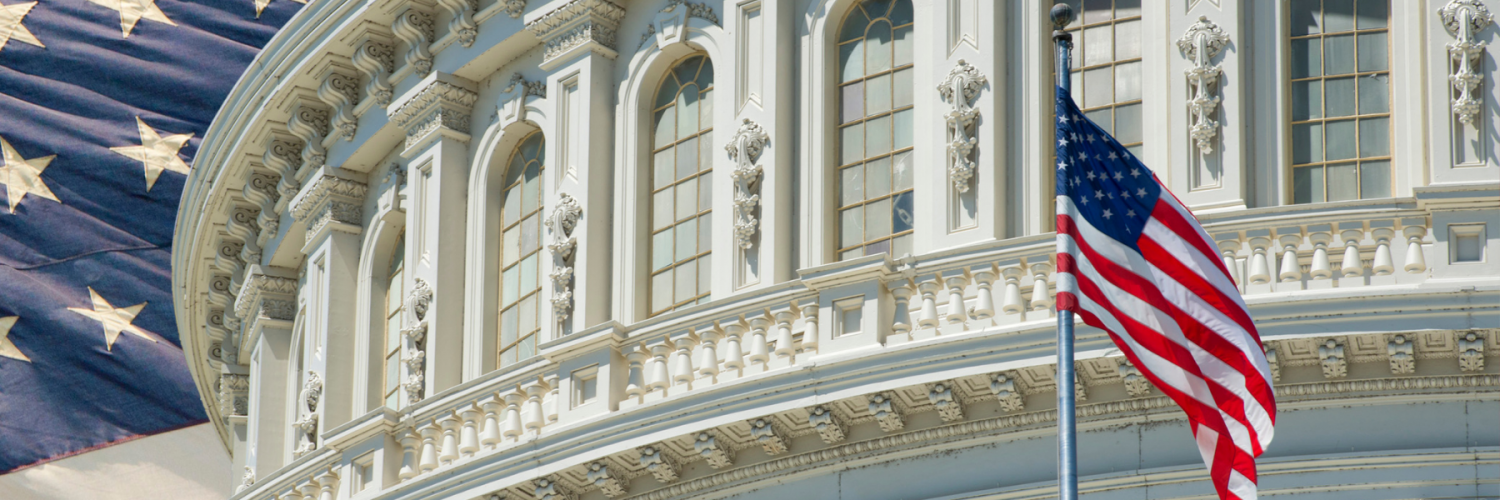

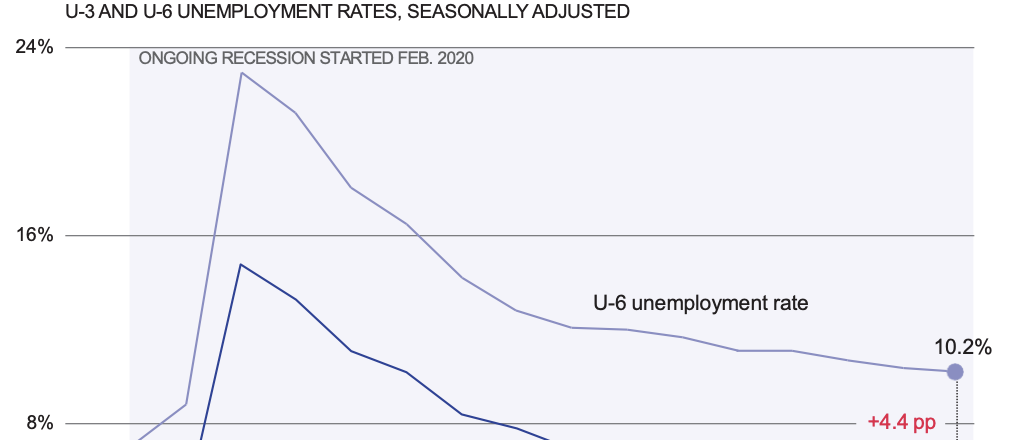













Add comment